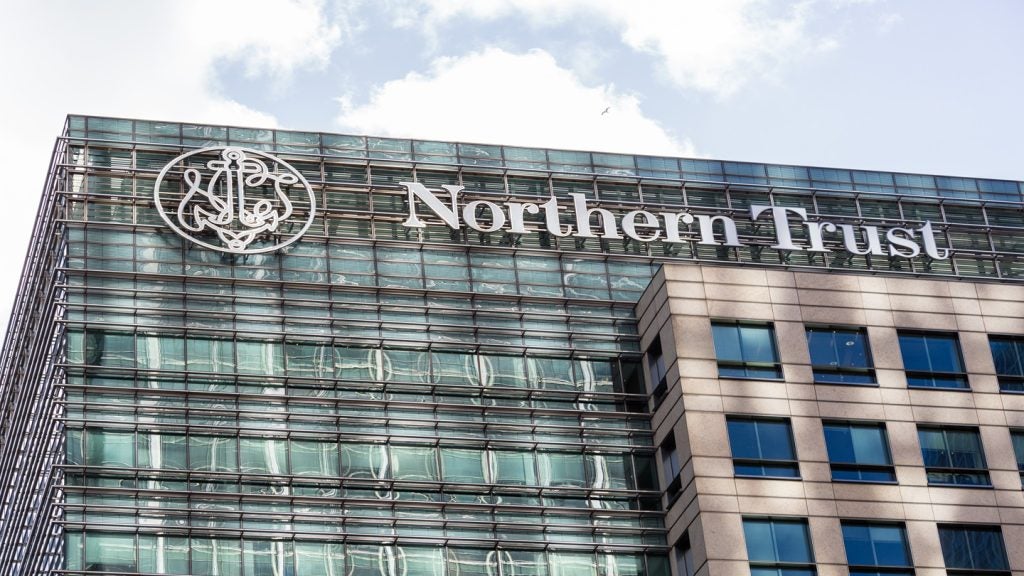Asia-Pacific is set to become HSBC
Private Bank’s most significant geography in the next 5 to 10
years, according to Chris Meares, its CEO. He also talked to
William Cain about a new sponsorship deal with business TV channel
CNBC as it continues to build on the powerful brand of its
parent.
In an industry built largely on trust
and reputation, brand strength is a vital ingredient in building a
successful wealth management franchise, and nowhere is that more
evident than at HSBC Private Bank.
As well as recently launching a number of its
own initiatives, including a rebrand and a sponsorship deal with
business TV network CNBC, the wealth manager has benefited from the
conservative qualities of its parent through the financial
crisis.
It has also benefited from its strength and
focus on Asia, a region Chris Meares, CEO of HSBC Private Bank,
said continues to gain significance in private banking.
Meares said the business’ Asia-Pacific arm
will make up more than 50 percent of its assets under management
and profit in the next five to ten years, up from the current level
of 30 percent. Investment in countries like China, Russia and
India, which HSBC Private Bank has made over the last 18 months,
would take time to make money but are likely to fuel that growth in
the longer term, he said.
How well do you really know your competitors?
Access the most comprehensive Company Profiles on the market, powered by GlobalData. Save hours of research. Gain competitive edge.

Thank you!
Your download email will arrive shortly
Not ready to buy yet? Download a free sample
We are confident about the unique quality of our Company Profiles. However, we want you to make the most beneficial decision for your business, so we offer a free sample that you can download by submitting the below form
By GlobalData“Yes, I think that percentage will definitely
go up, mainly because that’s where a lot of the new wealth is
created,” said Meares.
“We don’t have any specific targets but I’d
expect that the percentage will increase. But you have to bear in
mind that parts of our European business are growing strongly, we
have the Middle East [which is primarily booked in Europe], Turkey
and other fast-growing countries. There’s still a lot of wealth
being created in a number of the developed economies.”

Unifying the brand
Success in Asia-Pacific, and much of
HSBC Private Bank’s business success during the financial crisis,
is based around a brand which is barely 10 years old. Since
unifying the bank’s various businesses under the HSBC logo in 1999
it has become recognised as probably the only truly global
bank.
Meares said his part of the HSBC franchise has
not been a huge user of media marketing in the past. It generally
targeted clients through specialist events which combine
presentations on wealth management and financial planning with
cultural and networking events. Meares had just returned from
Switzerland from such an event prior to speaking to PBI. He had
been in Gstaad for the bank’s seventh family forum in conjunction
with its sponsorship of the annual Yehudi Menuhin season, a
classical music festival.
The marketing push has been stepped up in 2009
following its $10 million rebranding in March this year. The bank
gave a marketing mandate to advertising group WPP to bring the
private bank’s positioning closer to the core values of the HSBC
Group.
More recently, the private bank signed a deal
with business news channel CNBC to sponsor a series of 60-second
features on alternative investments. There are 13 individual
features which will be broadcast on the network’s flagship
programme Squawk Box Europe.
The move was in keeping with the bank’s
philosophy that a dollar spent in a downturn is worth two dollars
when the market is advancing, according to Meares.
“It’s a new space and an interesting one for
us to be involved in,” he told PBI. “CNBC said they were launching
a series on alternative investments, initially focusing on areas
like wine and art investment, but we thought there were lots of
other interesting areas in alternatives that could also be
covered.
“The series will also look at renewable
energy, hedge funds, private equity and real estate among
others.”
Alternatives a
differentiator
Expertise in alternatives is one of
the areas HSBC Private Bank feels it can differentiate itself. Its
clients are among the world’s largest investors in hedge funds, for
example, with around $30 billion invested in the products.
“The CNBC deal certainly supports us in that
area,” said Meares. “We have a strong research function in hedge
funds with experts based in New York, Hong Kong, London and
Switzerland. There are not many people operating in this area,
because it’s highly specialised. Knowing the different strategies
and being in touch with hedge fund owners is very important and
that knowledge and research expertise certainly provide us with a
niche.”
On the same day as the interview this month,
HSBC’s Swiss-based private bank revealed it had seen $4 billion
withdrawn from its hedge fund portfolios in the first half of 2009.
Meares said much of the worst of the outflows had now finished and
its hedge fund business was seeing net inflows for the first time
since the onset of the crisis.
Clients were still interested in hedge funds
as part of wealth preservation strategies, depending on their risk
appetite, he said.

Many clients like a so-called bar-bell
approach, balancing large quantities of cash holdings on the one
hand with an allocation to hedge funds as a strategy to outperform
other asset classes.
Meares said interest in certain structured
products has returned, despite the products dividing the industry
during the financial crisis. Due to the collapse of some issuers of
the products like Lehman Brothers and AIG, clients at many banks
lost money on products they thought were capital protected.
“If you take the example of Lehman Brothers,
no-one envisaged it going under. What I would say is as long as the
product was part of a diversified portfolio, clients were probably
OK and that has been one of the key lessons over the last 12 months
– the need to be properly diversified,” said Meares
“You also have to make sure you have the
conversations with clients well recorded. What can typically happen
is a client would buy a product initially, and then after they were
happy with the performance they’d buy multiples of them. In that
scenario now you have to make sure every time you do something with
the client you explain it all again.”
Meares said around half of the structured
products in the bank’s client portfolios were products created
in-house at HSBC Private Bank.
Ultra high net worth
HSBC Private Bank broke into the top
five private banks globally, according to PBI’s half-yearly update
of its global wealth management rankings.
It overtook Citi, which dropped out
of the top five following the sale of its Smith Barney wealth
management business. HSBC Private Bank has itself placed third in
its in-house rankings as it does not include Bank of
America/Merrill and Morgan Stanley’s brokerage businesses.
It is one of the lead players in the ultra
high net worth space (UHNW), benefiting from its sprawling base of
private, commercial and investment banking. It also operates
further down the spectrum in the high net worth segment, generally
considered more profitable.
“I think that this $500,000 to $10 million
area is seen as a sweet spot in that you are able to agree a
reasonable level of fees,” said Meares.
“But UHNW is an important part of our
business. While private banking clients will tend to be charged
less than retail clients on portfolio management and funds etc. in
terms of margins, the volume and size of transactions at the UHNW
level can offset that.

“I think the other reason though, and the
reason we are active in both segments, is UHNWIs will use you for
quite different aspects.
“They usually have fairly firm views on how
they want their money to be managed and take a hands-on approach.
They will often have created their own family or investment offices
and are more directive in the way they do their investment
business. With the very large ones, and here we’re talking about
the $100 million plus area, you are maybe only managing a part of
their total wealth.”
He added: “Because we have such a wide range
of businesses across the bank, it means we can provide the other
services they require, which sets us apart from the competition… we
can provide banking services in many parts of the world, and the
lending which a lot of wealth managers do not do.”
“Lending is important, as is trust and
administration services. Most wealthy families will have a range of
advisers and we quite like doing that as well, so the key with UHNW
clients is to provide the services to them that you are able to be
best at, because they will be using a number of different
firms.
Pricing and fees
The quasi-institutional nature of
UHNW clients means it can be a tough area to operate in,
particularly with regard to pricing. Prices are negotiated
intensively because the clients have access to first-class advisers
and it is considered a difficult segment to make money.
Meares concluded: “I wish we had much more say
in it but the reality and there is a floor beyond which we will not
go but there is usually a pretty big discussion around price and we
find out quickly whether we can agree on price or not.
“Then it can be very satisfying, as it is a
very relationship-oriented business, with UHNW clients usually
asking you to know their family office people and the family
themselves.”







